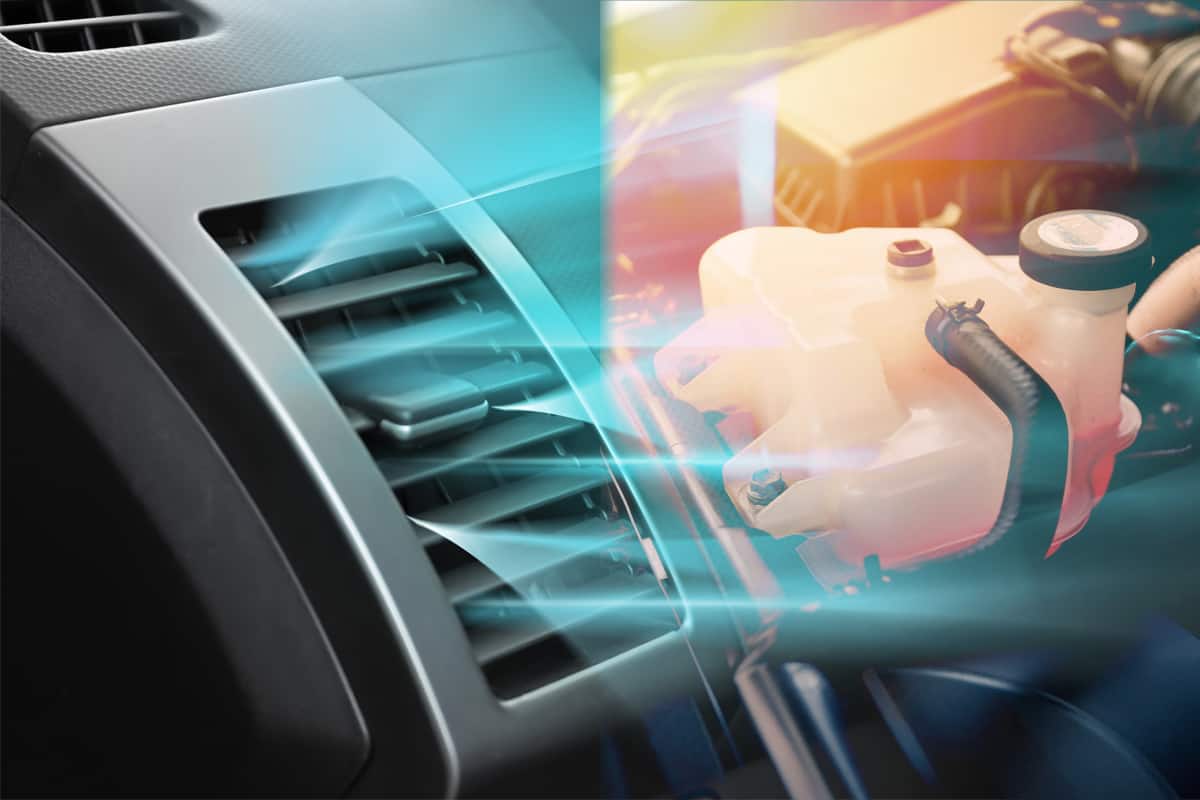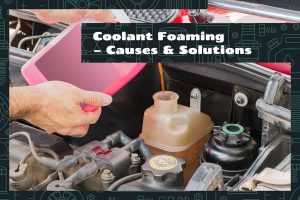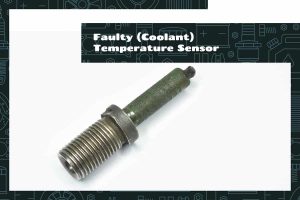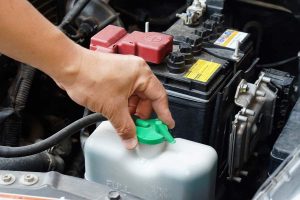Spring is just around the corner, and with it comes sunshine, rain showers, and a ton of humidity. Luckily, we have the ACs in our cars to rely on as we zip down long, winding roads… or do we? What if your AC is on the fritz? Does adding engine coolant affect the AC’s performance in any way, shape, or form?
Engine coolant helps regulate the temperature of the engine, and it also plays a role in the AC system. If the coolant level is too low, the compressor, which is a critical component of the AC system, may not receive enough lubrication, leading to decreased performance or complete failure.
In this guide, I’ll explain in greater detail what engine coolant is, how engine coolant affects your car’s AC, and how to tell when you need to top off the coolant reservoir.
What Is Engine Coolant?
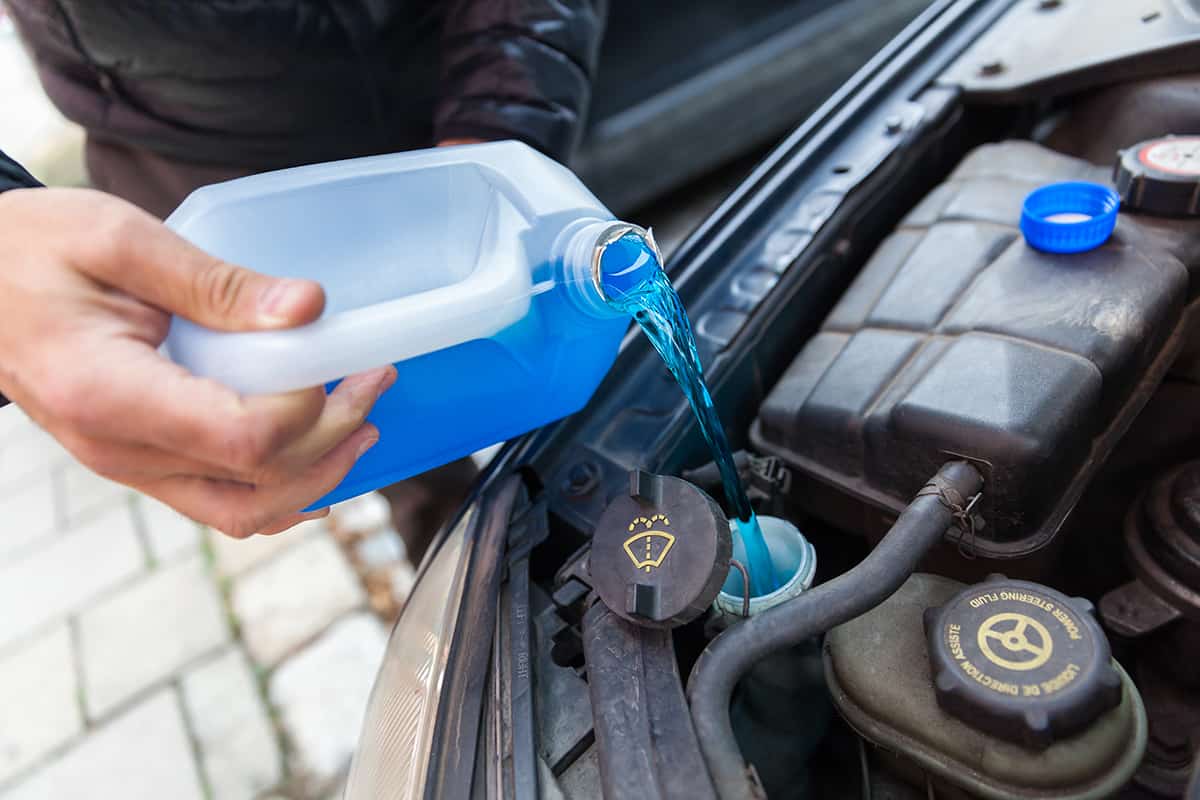
Engine coolant is a mixture of water and antifreeze that is circulated through the engine to regulate its temperature. The purpose of engine coolant is to absorb and transfer heat away from the engine to prevent overheating and damage.
It also helps prevent the engine from freezing during cold weather. The antifreeze component of the coolant raises the boiling point and lowers the freezing point of the water, making it more effective in protecting the engine in extreme temperatures.
The coolant for the engine is kept in a reservoir that is more commonly known as a radiator, and a water pump is responsible for recirculating the coolant throughout the engine. It is essential to perform routine checks on the level of the engine coolant and to ensure that the appropriate ratio of antifreeze to water is maintained so that the engine can maintain its optimum temperature range and continue to function effectively.
Does Engine Coolant Affect AC Performance?
What may seem odd to some people is why someone would ask whether engine coolant affects AC performance or not. After all, engine coolant is used to keep the engine cool, whereas car ACs use refrigerant (freon) to keep temperatures low and crisp.
It turns out that engine coolant does, in fact, play a role in the overall performance of the cooling system, but not in the ways that you might think it does.
How engine coolant affects temperature
It is the job of the coolant to remove heat from the engine, and if it is doing its job properly, it will do so. On the other hand, if the coolant system is situated in close proximity to the air conditioning system, it has the potential to warm the air that is blown into the cabin unintentionally. Because of this, the air conditioner might not provide the level of cooling that is required, resulting in a warmer cabin.
How engine coolant affects airflow
The performance of the AC compressor, an essential part of the AC system, can be negatively impacted by engine coolant, which can have a knock-on effect on the airflow through the AC system. The air conditioning compressor moves refrigerant around the system to keep the cabin at a comfortable temperature.
If the engine coolant level is too low, the compressor may not receive enough lubrication, leading to decreased performance or complete failure. Additionally, a leak in the coolant system can allow refrigerant to escape, reducing the overall pressure in the AC system and impacting its ability to circulate cool air.
How engine coolant affects humidity
Because it interacts with the moisture levels in the engine block, engine coolant can have an effect on the relative humidity of the air conditioner. It is possible that if there is not enough coolant in the engine, it will not be able to absorb and transfer enough heat away from the engine, which will cause the temperatures inside the engine to rise.
As a result, the AC system may have to work harder to cool the cabin, and in doing so, it may also dry out the air inside the car. When the AC system operates, it removes moisture from the air to regulate the humidity levels inside the cabin. If the AC is running excessively, it may remove too much moisture, leading to dry air inside the vehicle.
How to Tell When to Refill Coolant Reservoir
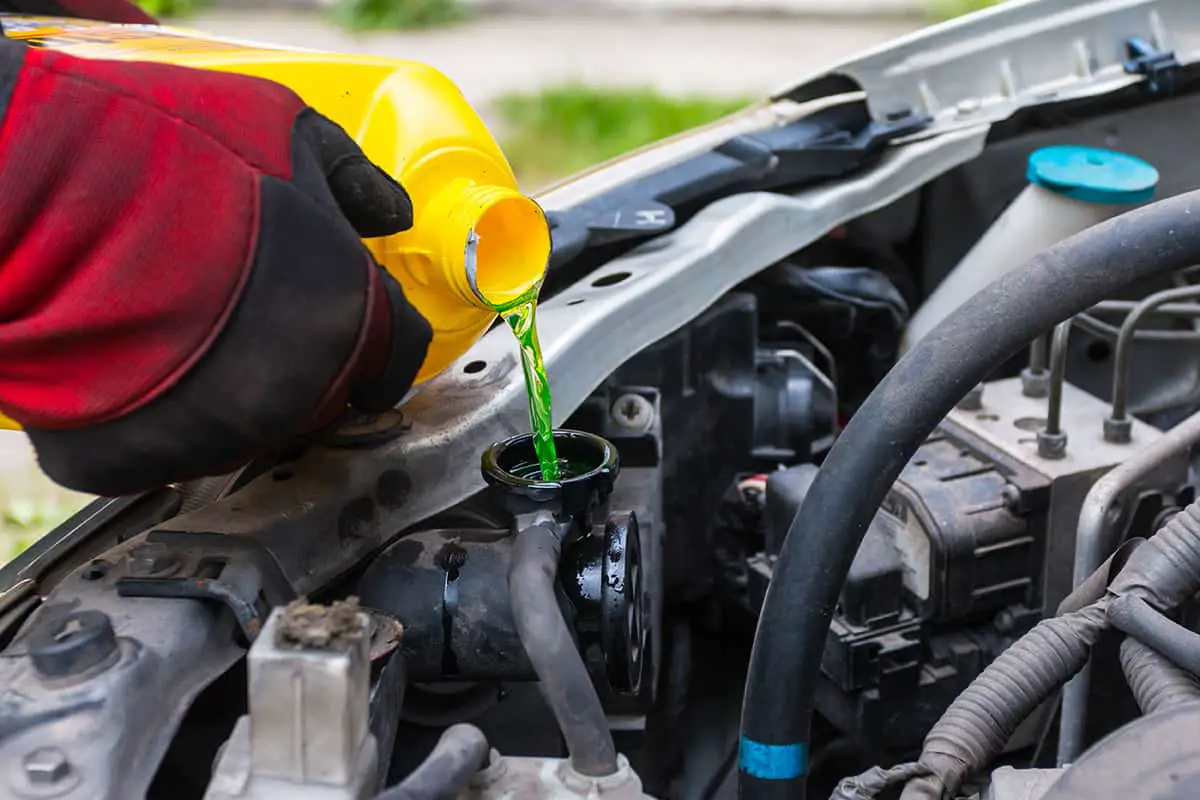
The following are some of the warning signs that should alert you that the coolant reservoir in your engine is getting low.
- Warning light on the dashboard— Most modern vehicles have a coolant temperature warning light that illuminates when the coolant level is low or if the engine is overheating. The warning light is typically a red or yellow light in the shape of a thermometer or an engine. When the light illuminates, it is a sign that the engine coolant level is low or that there is an issue with the cooling system.
- Overheating engine—Engine coolant helps regulate the temperature of the engine and prevent overheating. If the coolant level is too low, the engine may overheat because it does not have enough coolant to transfer heat away from the engine. If the engine temperature gauge is reading high or the engine is making a knocking or hissing sound, it may be a sign of overheating and low engine coolant levels.
- Sweet-smelling vapor from the engine—A sweet-smelling vapor coming from the engine can indicate low engine coolant levels. The sweet smell is typically caused by a coolant leak, which can result in low coolant levels in the engine. If coolant is leaking from the engine, it can mix with engine oil, producing a sweet-smelling vapor that can be detected from inside or outside the vehicle.
- Engine misfires or stalls— If the level of engine coolant is too low, the engine may not be able to function properly and may overheat as a result. Engine coolant helps regulate the temperature inside of the engine. If the engine is not getting enough coolant to transfer heat away from the engine, which would cause it to overheat, this can cause the engine to misfire or even stall.
